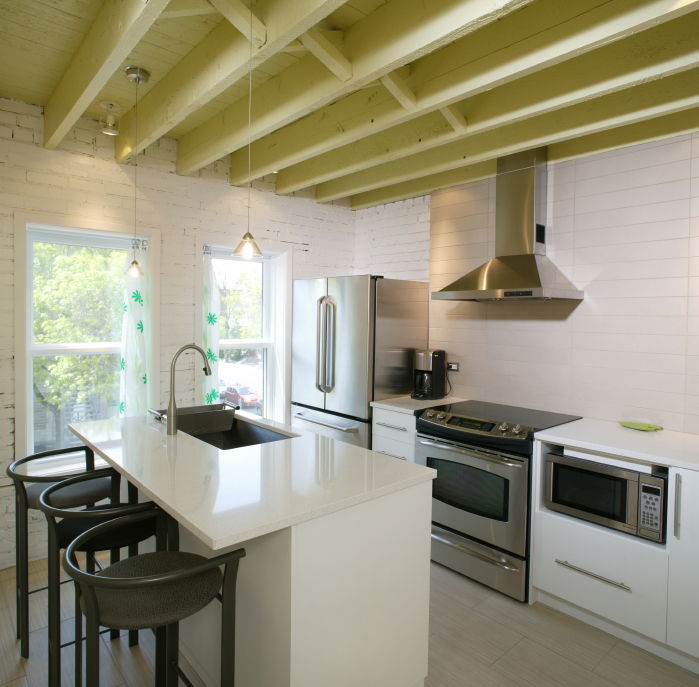Eco-friendly Kitchen Fixtures
 If you have thrown everything but the kitchen sink at your home sustainability efforts, it might be time for that last step. You can save on water, raw materials and energy with the right eco-friendly kitchen sink and other kitchen fixtures. Enjoy hot water on demand, a unique sink and customized lighting all while reducing environmental impacts. You can even support water conservation programs with your kitchen faucet purchase.
If you have thrown everything but the kitchen sink at your home sustainability efforts, it might be time for that last step. You can save on water, raw materials and energy with the right eco-friendly kitchen sink and other kitchen fixtures. Enjoy hot water on demand, a unique sink and customized lighting all while reducing environmental impacts. You can even support water conservation programs with your kitchen faucet purchase.
Low-flow kitchen faucets
As fresh water becomes scarcer, shrinking your water footprint is as important as shrinking your carbon footprint. You can instantly cut water usage in the kitchen with a low-flow aerator. A simple aerator can reduce the kitchen faucet flow rate from 4 gallons or more per minute to as low as 0.5 gallons per minute. You’ll probably want a faster flow if you fill the sink and hand-wash dishes. In that case, get an aerator that delivers at least 1.5 gallons per minute. Otherwise, 1 gallon per minute should be plenty.
Aerators are easily added to existing faucets or installed as part of a new faucet. Kohler sells a variety of aerated kitchen faucets, and sponsors a number of water conservation outreach and education programs that earned two WaterSense awards from the Environmental Protection Agency.
Hot water dispenser
You can also save energy with your kitchen sink. A hot water dispenser is a luxurious convenience that is also more eco-friendly — maybe. If you boil a lot of water on the stove or in an electric kettle, put a hot water dispenser in the sink. These devices use a small, highly insulated water tank connected to a smaller, secondary faucet. They use less energy than stoves or electric kettles, but they are always on, so they are only a more efficient option if you are otherwise heating water regularly throughout the day.
If you need filtered water, consider a filter attached to the faucet or hot water dispenser. They are better than bottled water for the environment.
Recycled sinks
You need a sink to capture all your filtered, low-flowing water, and there are a variety of eco-friendly sink materials. A typical stainless steel sink is at least 60 percent recycled and nearly 100 percent recyclable. For true eco-cred, 100-percent recycled steel sinks are available. Manufacturing recycled steel requires a fraction of the energy and other environmental impacts involved in making virgin steel.
For a more unique look, other recycled materials are available. Cobr sells 100-percent recycled copper sinks, and EnviroSLAB offers countertops with inline sinks made from 100-percent recycled glass and porcelain.
LED light fixtures
Lighting fixtures in the kitchen also offer opportunities for major energy savings. The kitchen is the ideal place to start moving into light-emitting diodes, a versatile type of lighting that uses less energy than compact fluorescent bulbs. LEDs come in a rainbow of colors and can be very small, which makes them a good option for under-counter task lighting or other small, focused lighting needs in the kitchen. LED fixtures remain more expensive, but prices are dropping.
Consider energy, water and materials in choosing kitchen fixtures. Far from being a green sacrifice, the most attractive and luxurious kitchen options are also the most eco-friendly.
Looking for a Pro? Call us (866) 441-6648

Plumbing Average Costs
Plumbers Experiences

Gas Line Installation Made Simple

An Amazing, Reliable Plumber Answered My Call On New Year’s



